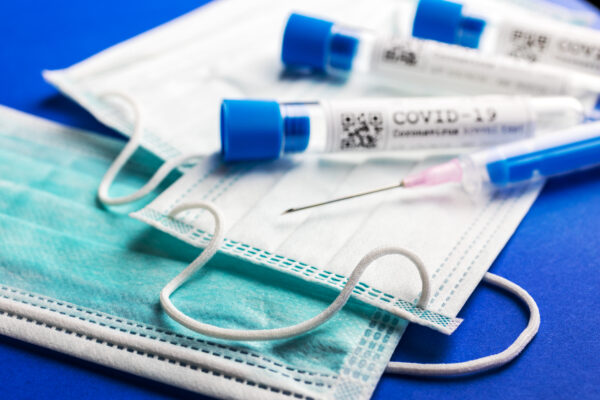
The Centers for Medicare & Medicaid Services announced last week that it will cover monoclonal antibodies to treat Covid-19 for Medicare beneficiaries during the current public health crisis. But this may not mean that the treatments will be readily and widely available for these patients.
Several pharmaceutical companies testing monoclonal antibodies — which are synthetically made proteins that operate like human antibodies in the immune system — have released promising results. In September, Eli Lilly announced data from an interim analysis of its Phase II trial of a monoclonal antibody designed to neutralize the novel coronavirus. Study results indicated a significant reduction in risk of hospitalization among those who received the drug compared with patients in the placebo group. Regeneron Pharmaceuticals also recently released promising early results from a clinical trial examining a cocktail of two monoclonal antibodies intended to fight Covid-19.
Though the clinical evidence for antibody treatments is growing, it is still preliminary. But with its latest announcement, CMS, the nation’s largest payer, has committed to covering the treatments for Medicare patients who contract Covid-19. Its coverage also applies to bamlanivimab, an investigational monoclonal antibody therapy that last week received an emergency use authorization from the U.S. Food and Drug Administration.
The government is initially expected to distribute monoclonal antibody products to healthcare providers for free. CMS will not pay for the free products, but the payer will provide reimbursement for its infusion, a CMS spokesperson said via email. For the infusion of the bamlanivimab product, the Medicare payment rate will be $309.60.
“This payment rate is based on one hour of infusion and post-administration monitoring in the hospital outpatient setting,” the spokesperson said. “This rate will also be geographically adjusted. At a later date, CMS may use a similar methodology to determine the payment rate for the infusion of additional monoclonal antibody products.”
Once healthcare providers begin to purchase the products, CMS plans to set its reimbursement rate in the same way it will set the rates for Covid-19 vaccines. For example, CMS plans to pay 95% of the average wholesale price for Covid-19 vaccines provided in many provider settings, the spokesperson said.
Though the CMS coverage announcement is important — as new drugs are usually very expensive and this move aims to make antibody treatments more accessible — there are still two major hurdles to increasing the use of these therapies, Dr. Grace Lin, an associate professor of medicine and health policy at University of California, San Francisco, said in an email.
First, the supply of antibody therapies is limited, so there will not be enough initially for everyone who may qualify for the treatments, she said. Secondly, the setting where patients can receive the treatments may also be limited as not all clinics are set up for infusion and Covid-19-infected patients will need to be isolated from other patients.
“So, while CMS’ coverage is good news, it doesn’t automatically guarantee that these treatments will be quickly and readily available to Medicare patients,” Lin said.
CMS plans to issue billing and coding instructions for providers that offer the treatments in the coming days.
The question of whether commercial insurers will follow CMS’ lead and cover antibody treatments also remains. In this case, Lin expects they will, as a majority of payers have been covering Covid-19 treatments during the pandemic so far.
Photo credit: Michaela Dusikova, Getty Images















